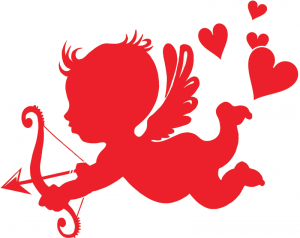Mixed emotions on Feb. 14, especially if you’re single or relationship is on the rocks
By David L. Podos
 With the Thanksgiving/Christmas/New Year holidays over, many people look forward to chilling out, taking a deep breath and recovering from the stress that oftentimes comes from the fast-paced holiday season.
With the Thanksgiving/Christmas/New Year holidays over, many people look forward to chilling out, taking a deep breath and recovering from the stress that oftentimes comes from the fast-paced holiday season.
But, could it be possible that the most stressful of all holidays is right upon us — indeed, it just might be for many, and that day is Valentine’s Day.
Valentine’s Day can be and is quite often traumatic, from the stress of picking out the right card, to deciding if flowers and chocolates for our loved ones is the best gift. Or, perhaps a nice intimate dinner at one of the more upscale restaurants could be the answer.
People are bombarded by the media weeks before offering a myriad of gifts to give to that “special person,” but what if you are alone, or in a volatile relationship?
Maybe you recently ended a relationship. In that case, the stakes get much higher in regards to emotional, mental, and physical stress, and the 14th of February, the day of “love,” is anything but that.
Many professionals in the field of mental health say Valentine’s Day does in fact increase anxiety levels, and causes all sorts of emotional challenges.
Psychologist Chloe Carmichael notes that Valentine’s Day can cause anxieties for those in a new relationship, flying solo, going through a break up, or dealing with a rocky relationship.
“While Valentine’s Day may seem like a celebration of love and relationships and tiny candy hearts, this sweet holiday elicits a sour taste for many,” Carmichael said while issuing some advice to help people cope with the holiday.
— Talk about it beforehand. It may be helpful to have an open discussion about Valentine’s Day expectations in advance of the holiday.
— Set realistic expectations with your partner. Communicating what your partner can do to make you happy and learning what you can do for your partner is a good way to ensure no one is disappointed by how the day goes.
— Don’t set your mind on one ideal. Above all, be open to new experiences. If you always thought you needed a dozen roses and candlelit dinner, perhaps you will find that a relaxing movie night at home can be even more fun with your fantastic new partner.
“Try to enjoy Valentine’s Day as a time to learn more about your partner. Instead of using this day to test your relationship, think of it as an opportunity to spend more time getting to know each other,” Carmichael points out.
Expert analysis
Mary Jo Kreitzer, founder and director of the University of Minnesota’s Center for Spirituality & Healing, said relationships nurture us and help us grow.
“They help us become better people. Valentine’s Day puts love on the brain. Throughout the world, people dedicate the day to celebrating relationships,” she said. “But we ought to be paying more attention to our relationships. Relationships are important to our health and well being every day of the year, not just Feb. 14.”
“Relationships can reduce stress and have been linked to overall improved health. But relationships are challenging — sometimes exhausting at best. People with poor relationships are more likely to suffer from depression, and loneliness is powerful enough to weaken our immune system,” says Kreitzer.
A number of Utica residents chimed in on their thoughts and experiences about the holiday and relationships in general. They asked that their real names not be used.
“Debbie” feels that Valentine’s Day is hyped up.
“It has caused much anxiety for me in the past but it doesn’t now as I am presently not in a relationship,” she said. “Why show special treatment to your significant other just because it’s Valentine’s Day? We should be special to that person every day, not just one day a year. Overall, I think men have the real burden on them. They have more anxiety to make sure they do the right thing. I think society puts an awful lot of expectations on them.”
“Adam” feels that Valentine’s Day is over-marketed. However, it does not cause him any anxiety as he is in a solid relationship. Adam can see how people who are alone and or not in a good relationship would experience anxiety and depression, particularly around Valentine’s Day.
“If you’re fortunate enough to be in a healthy relationship, it’s wonderful because it is routine and predictable, it gives witness to our own lives, it gives validation,” says Adam.

